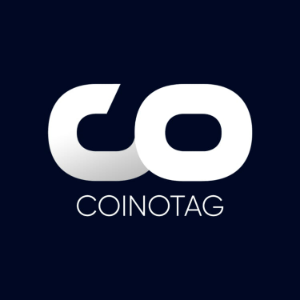Solana ETF: Cboe Files for Transformative Invesco Galaxy Offering
8 min read
BitcoinWorld Solana ETF: Cboe Files for Transformative Invesco Galaxy Offering In a move that has sent ripples of excitement through the digital asset community, the Cboe BZX Exchange has officially filed a proposed rule change with the U.S. Securities and Exchange Commission (SEC) to list and trade shares of the Invesco Galaxy Solana ETF . This significant development, initially reported by Wu Blockchain on X, marks a pivotal moment in the ongoing quest for broader institutional adoption of cryptocurrencies beyond Bitcoin and Ethereum. For many, this filing represents a powerful validation of Solana’s growing prominence and its potential to become a cornerstone of the future financial landscape. But what exactly does this mean for investors, and why is the prospect of a Solana ETF so groundbreaking? What is the Cboe Invesco Galaxy Solana ETF? At its core, an Exchange Traded Fund (ETF) is an investment vehicle that holds assets like stocks, bonds, or commodities, and then divides ownership of those assets into shares. These shares can be bought and sold on traditional stock exchanges throughout the trading day, much like individual stocks. A Solana ETF would function similarly, aiming to provide investors with exposure to the price movements of Solana (SOL) without requiring them to directly purchase, store, or manage the cryptocurrency itself. The filing by Cboe BZX Exchange is a crucial procedural step. Cboe, a leading global market infrastructure provider, has been at the forefront of facilitating access to digital assets through regulated channels. Invesco Galaxy, a collaboration between global investment manager Invesco and crypto asset manager Galaxy Digital, brings together traditional financial expertise with deep knowledge of the digital asset space. Their combined efforts signal a serious commitment to bringing a regulated Solana investment product to market. Simplified Access: Investors can gain exposure to Solana through a familiar, regulated investment vehicle. No Direct Custody: Eliminates the complexities and security risks associated with holding actual SOL tokens. Liquidity: Traded on a major exchange, offering easy entry and exit points. Why is the Solana ETF Filing So Significant? The filing for a Solana ETF holds immense significance for several reasons, extending far beyond just the Solana ecosystem. It represents a maturation of the crypto market and a deepening integration with traditional finance. Historically, the SEC has been cautious about approving spot crypto ETFs, citing concerns around market manipulation, investor protection, and the nascent nature of digital asset markets. While Bitcoin spot ETFs finally received approval in early 2024, and Ethereum ETFs are currently awaiting a decision, Solana’s entry into this high-stakes regulatory arena underscores its perceived legitimacy and robust infrastructure. Here’s why this filing is a game-changer: Expanding Institutional Acceptance: A successful Solana ETF would solidify Solana’s position as a legitimate, investable asset class in the eyes of institutional investors, pension funds, and wealth managers who often operate within strict regulatory frameworks. Diversification Beyond Bitcoin and Ethereum: For years, Bitcoin and Ethereum have dominated the conversation around institutional crypto products. A Solana ETF would offer a third major option, allowing investors to diversify their crypto exposure within regulated vehicles. Mainstream Accessibility: It opens the door for a much wider pool of retail investors who might be hesitant to navigate crypto exchanges, wallets, or private keys. Brokerage accounts that offer ETFs would suddenly provide easy access to Solana’s price action. Validation of Solana’s Ecosystem: Solana’s blockchain has gained significant traction for its high throughput, low transaction costs, and vibrant developer ecosystem. This ETF filing is a testament to the network’s technical advancements and growing utility in DeFi, NFTs, and gaming. This move suggests that the market believes Solana has achieved a level of decentralization, security, and liquidity that could satisfy regulatory scrutiny, setting a precedent for other altcoins to follow. Navigating the Regulatory Landscape for a Solana ETF The path to an approved Solana ETF is not without its challenges, primarily navigating the intricate regulatory landscape governed by the SEC. The filing, submitted under Section 19(b)(1) of the Securities Exchange Act and Rule 19b-4, initiates a formal review process where the SEC will scrutinize various aspects of the proposed fund. Key areas of SEC focus typically include: Market Surveillance Agreements: The SEC requires robust mechanisms to prevent market manipulation. This often involves surveillance-sharing agreements with regulated markets where the underlying asset (Solana) is traded. Custody Solutions: How will the underlying Solana tokens be securely held? The proposed ETF must demonstrate secure and compliant custody arrangements. Valuation Methodology: A clear and reliable method for valuing the Solana held by the ETF is essential to ensure fair pricing for investors. Investor Protection: The filing must demonstrate how the ETF structure protects investors from fraud and ensures transparency. While the recent approval of spot Bitcoin ETFs has set a precedent, each new asset class presents unique considerations. The SEC’s historical reluctance stemmed from concerns about the maturity and regulation of the underlying crypto spot markets. Solana, being a newer and more centralized blockchain in its early days compared to Bitcoin, will face specific questions regarding its decentralization, security, and potential for market manipulation. However, Solana’s rapid growth and increasing liquidity in regulated exchanges could help address some of these concerns. Potential Benefits and Challenges of a Solana ETF The introduction of a Solana ETF could unlock a myriad of benefits for investors and the broader crypto market, but it also comes with its own set of challenges that need careful consideration. Benefits: Benefit Description Accessibility Easier for traditional investors to gain exposure to Solana through existing brokerage accounts, bypassing complex crypto exchanges and self-custody. Liquidity ETFs are highly liquid, allowing for easy buying and selling throughout the trading day. This can reduce slippage and improve price discovery for Solana. Regulatory Oversight Operating under SEC regulations provides a layer of investor protection and transparency not always present in unregulated crypto markets. Diversification Offers a new avenue for portfolio diversification within the digital asset space, moving beyond just Bitcoin and Ethereum. Institutional Capital Inflow Could attract significant capital from large institutional players who require regulated investment products. Challenges: Volatility: Solana, like other cryptocurrencies, is highly volatile. An ETF would expose investors to these rapid price swings, which might not be suitable for all risk appetites. Regulatory Hurdles: Despite the filing, SEC approval is not guaranteed and could face delays or outright rejection based on various factors unique to Solana’s market structure. Fees: ETFs typically charge management fees, which can eat into returns over time compared to direct ownership (though direct ownership has its own costs like transaction fees). Basis Risk: The ETF’s price might not perfectly track the underlying Solana price due to various factors, leading to a potential tracking error. Centralization Concerns: While Solana has made strides in decentralization, some critics still point to aspects of its network that could be perceived as more centralized than Bitcoin or Ethereum, which might be a point of contention for regulators. What’s Next for the Solana ETF? The filing by Cboe BZX Exchange is merely the first step in a potentially long and complex journey. The SEC now has a statutory period to review the proposed rule change. This period typically involves: Public Comment Period: The SEC will solicit public comments on the filing, allowing interested parties to submit their views. Extensions: The SEC often extends the review period multiple times, pushing the final decision deadline further out. This has been a common pattern for all crypto ETF applications. Discussions and Amendments: There will likely be ongoing discussions between the SEC, Cboe, Invesco, and Galaxy to address any concerns and make necessary amendments to the filing. While the exact timeline remains uncertain, the market will be closely watching for any updates. An approval would undoubtedly be a massive bullish catalyst for Solana, potentially driving significant new capital into its ecosystem and further legitimizing the asset class. Conversely, a rejection could lead to short-term price corrections and dampen enthusiasm, though it wouldn’t necessarily signal the end for future Solana ETF attempts. A Transformative Step for Digital Assets The Cboe filing for the Invesco Galaxy Solana ETF is more than just another regulatory application; it’s a testament to the relentless evolution of the digital asset space and its increasing integration into traditional finance. It signals a growing confidence in Solana’s underlying technology and its potential as a long-term investment. While the road ahead for approval may be challenging, this development marks a significant stride towards making cutting-edge digital assets like Solana accessible to a broader investor base, potentially unlocking unprecedented levels of capital and mainstream adoption. As the crypto market continues to mature, such filings are crucial milestones that pave the way for a more inclusive and robust financial future. Frequently Asked Questions (FAQs) 1. What is a Solana ETF? A Solana ETF (Exchange Traded Fund) is an investment product that allows investors to gain exposure to the price movements of Solana (SOL) without directly owning the cryptocurrency. It trades on traditional stock exchanges, offering a regulated and familiar way to invest in Solana. 2. Who filed for the Invesco Galaxy Solana ETF? The Cboe BZX Exchange filed the proposed rule change with the U.S. Securities and Exchange Commission (SEC) to list and trade shares of the Invesco Galaxy Solana ETF . 3. What is the role of the SEC in approving a Solana ETF? The SEC (U.S. Securities and Exchange Commission) is the primary regulator responsible for approving or rejecting ETF applications. They review filings to ensure investor protection, market integrity, and compliance with securities laws, scrutinizing aspects like market surveillance, custody, and valuation. 4. How does a Solana ETF differ from directly owning Solana? With a Solana ETF , you buy shares of a fund that holds Solana, managed by a professional entity, and traded on a traditional exchange. Directly owning Solana involves buying SOL tokens on a cryptocurrency exchange and managing your own digital wallet and private keys. 5. What are the potential impacts of a Solana ETF approval? An approval could lead to increased institutional investment, greater mainstream accessibility for retail investors, enhanced liquidity for Solana, and further legitimacy for the entire digital asset class beyond Bitcoin and Ethereum. 6. What are the main challenges facing the Solana ETF approval? Key challenges include satisfying the SEC’s concerns regarding market manipulation, ensuring robust custody solutions, demonstrating adequate market surveillance, and addressing any unique regulatory considerations related to Solana’s specific blockchain characteristics and decentralization. If you found this deep dive into the Solana ETF filing insightful, share it with your network! Help spread awareness about this significant development in the world of digital asset investments and contribute to the ongoing conversation about crypto’s future. To learn more about the latest crypto market trends, explore our article on key developments shaping Solana institutional adoption . This post Solana ETF: Cboe Files for Transformative Invesco Galaxy Offering first appeared on BitcoinWorld and is written by Editorial Team

Source: Bitcoin World



